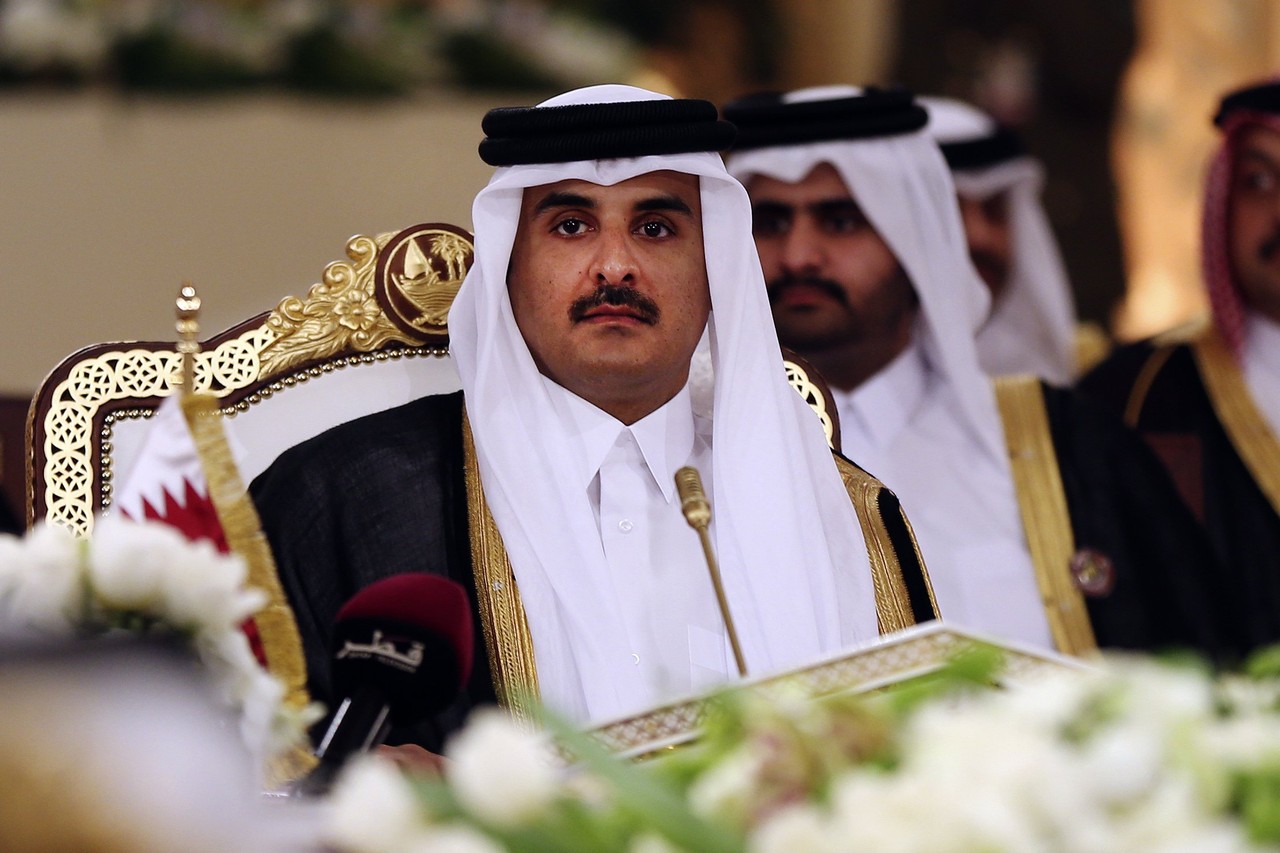Pressure on Qatar to Reduce Its Funding of Extremist Groups

On Dec. 29, 2014, the Wall Street Journal published an analysis piece by Yaroslav Trofimov, “Qatar Scales Back Intervention in Middle East Conflicts,” describing the pressure brought to bear on Qatar to reduce its support for radical Muslim groups like the Muslim Brotherhood. The article delves into the important topic of Qatar’s role in fomenting instability and radicalism and the reaction it has generated among the most important Arab states.
Qatar has a tiny population, but it enjoys outsized influence due to its enormous wealth derived from vast natural-gas deposits. In recent decades, it has increasingly used this wealth to promote the Muslim Brotherhood. Qatar’s ruler, Emir Tamim bin Hamad al-Thant, controls the Qatari-based international news channel, Al Jazeera.
Since the overthrow of the Muslim Brotherhood-dominated Egyptian government and accession of General Abdel Fattah Al Sisi to the presidency of Egypt, Egypt and Qatar have been sharply at odds. As Egypt contends with chronic terrorism in the Sinai peninsula, Qatar’s role as a main donor to Hamas in Gaza has become a major point of contention. It’s not just Egypt that has a problem with the Muslim Brotherhood. The Brotherhood has antagonized Saudi Arabia, Bahrain and other Gulf emirates.
Saudi Arabia and the Gulf emirates recently took the unusual step of withdrawing their ambassadors to Qatar. Isolation from its fellow Sunni Arab states appears to have prompted the Qatari ruling clique to reconsider its stance in the region.
Trofimov recounts that after a visit by a senior Qatari envoy to Egypt, Qatar shut down its Egyptian channel of Al Jazeera. This decision came despite Al Jazeera’s public campaign to shame the Egyptian government into releasing two of its correspondents who were arrested and convicted of supporting the Muslim Brotherhood and falsely reporting events.
Trofimov’s piece is the type of reporting that major news organizations should encourage. Such analysis draws readers away from an excessive focus on the Israeli-Palestinian conflict and provides insight into events unfolding in the Middle East.
More from SNAPSHOTS
Mahmoud Abbas’ Diatribe Threatening Israel Included Bogus Canaanite Claim
September 10, 2019
Palestinian Authority President Mahmoud Abbas’ recent anti-Israel diatribe that aired on PA TV was monitored and translated by Palestinian Media Watch (PMW). Excerpt: "I say to [Israel]: Every stone you have built on our land [...]
CNN Calls House’s Unifying Anti-BDS Vote ‘Divisive’
July 24, 2019
Yesterday, in an overwhelming vote of bipartisan support, the House of Representatives voted 398 to 17 to adopt a resolution opposing the anti-Israel BDS (boycott, divest, sanctions) campaign. Yet, CNN's headline casts the unifying vote [...]
NY Times Cites Poll, Hides Palestinian Support for Violence
July 9, 2019
The New York Times has struggled to accurately describe polls this year. In January, editor Jonathan Weisman misrepresented Pew polling data to describe a nonexistent surge in Israeli support for the United States under President [...]
CNN’s Zakaria Indulges Palestinian Propagandist Hanan Ashrawi
June 9, 2019
Fareed Zakaria’s weekly Cable News Network (CNN) program (grandiosely named “Global Public Square”) June 9 broadcast included a discussion of the current U.S. Middle East peace plan with guests Hanan Ashrawi (Palestinian Authority official) and [...]
In Robert Bernstein Obit, AFP Inappropriately References His Judaism
May 29, 2019
Robert Bernstein (Courtesy the New Press) In its obituary yesterday for American publisher Robert Bernstein, Agence France Presse inserted an inappropriate reference to the Human Rights Watch founder who later turned on the organization due [...]


